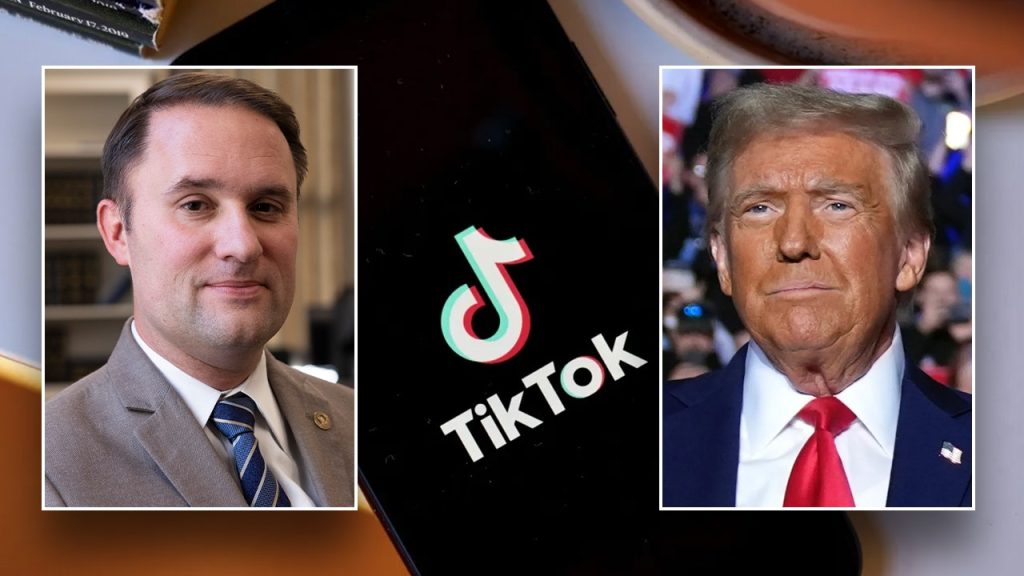Republican attorneys general of Virginia and Montana filed an amicus brief asking the Supreme Court to require TikTok to sever its ties with the Chinese Communist Party as concerns mount over the social media platform’s connections to the CCP. President-elect Trump also filed his own amicus brief requesting the Supreme Court to pause the TikTok ban, allowing him to make executive decisions about TikTok once he takes office. Virginia Attorney General Jason Miyares argued that allowing TikTok to operate without cutting ties to the CCP exposes Americans to risks of their data being accessed and exploited by the Chinese government, emphasizing the importance of protecting privacy and security.
The amicus brief filed by Miyares and Montana Attorney General Austin Knudsen seeks to uphold the divest-or-ban law against TikTok, highlighting whistleblower reports that show ByteDance, TikTok’s parent company, has shared sensitive information with the CCP, including Americans’ browsing habits and facial recognition data. Trump’s spokesperson stated that the President-elect’s decision-making would prioritize American national security, urging the Supreme Court to extend the deadline for TikTok’s shutdown and allow Trump to address the issue when he takes office in January 2025. Trump’s brief stresses the need to balance free speech rights with foreign policy and national security concerns, positioning the President-elect as the appropriate constitutional actor to resolve the dispute through political means.
The amicus briefs filed by the Republican attorneys general and President-elect Trump underscore the growing concerns about TikTok’s ties to the Chinese Communist Party and the potential risks this poses to Americans’ data privacy and security. By petitioning the Supreme Court to intervene in the fate of TikTok, these officials are seeking to address the complexities of balancing free speech rights with national security imperatives, particularly in the context of a social media platform with significant connections to a foreign government. The legal actions taken by Virginia, Montana, and Trump signal a commitment to safeguarding American interests and data from potential exploitation by external actors like the CCP, highlighting the importance of maintaining security and privacy standards in the digital age.
As the Supreme Court considers the arguments presented in the amicus briefs, it has the opportunity to clarify Congress’s authority to protect Americans from foreign threats while upholding the principles of the First Amendment. The involvement of state attorneys general and the President-elect in this legal challenge reflects a broader effort to address the national security implications of TikTok’s operations and its links to the Chinese Communist Party. By engaging in this legal battle, these officials are signaling their commitment to ensuring that Americans are adequately protected from potential risks associated with foreign-owned social media platforms, emphasizing the need for regulatory safeguards to mitigate security vulnerabilities and protect user data from exploitation by foreign governments.
The case surrounding TikTok and its connections to the Chinese Communist Party highlights the complex intersection of technology, national security, and free speech rights in the digital era. By raising concerns about TikTok’s data-sharing practices and its parent company’s ties to the CCP, the amicus briefs filed by Virginia, Montana, and President-elect Trump underscore the importance of addressing these issues to safeguard American interests and privacy. As the Supreme Court deliberates on the future of TikTok in the U.S., it will have the opportunity to shape the legal framework governing the regulation of foreign-owned social media platforms and address the broader implications for national security and free speech rights. Through these legal actions, officials are seeking to protect American citizens from potential threats to their data security and privacy, highlighting the ongoing challenges posed by the globalization of technology and the need for robust regulatory mechanisms to address these concerns effectively.
Overall, the efforts by Republican attorneys general and President-elect Trump to challenge TikTok’s ties to the Chinese Communist Party in court underscore the growing concerns about foreign influence on American social media platforms and the implications for national security. By engaging with the Supreme Court on this issue, these officials are seeking to establish legal precedents that clarify the government’s authority to mitigate risks posed by foreign-owned platforms and protect American citizens from potential exploitation. As the legal battle over TikTok unfolds, it will be crucial to balance the imperatives of national security with the principles of free speech, ensuring that regulatory frameworks adequately address the challenges posed by the intersection of technology, geopolitics, and individual rights in the digital age.













